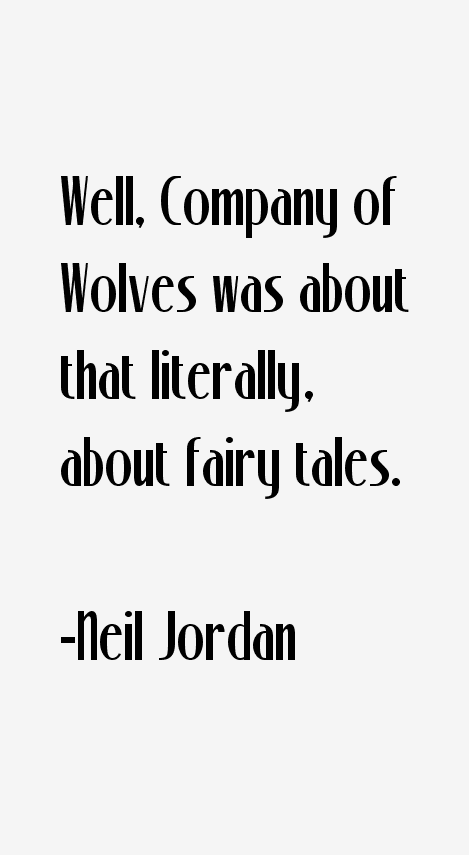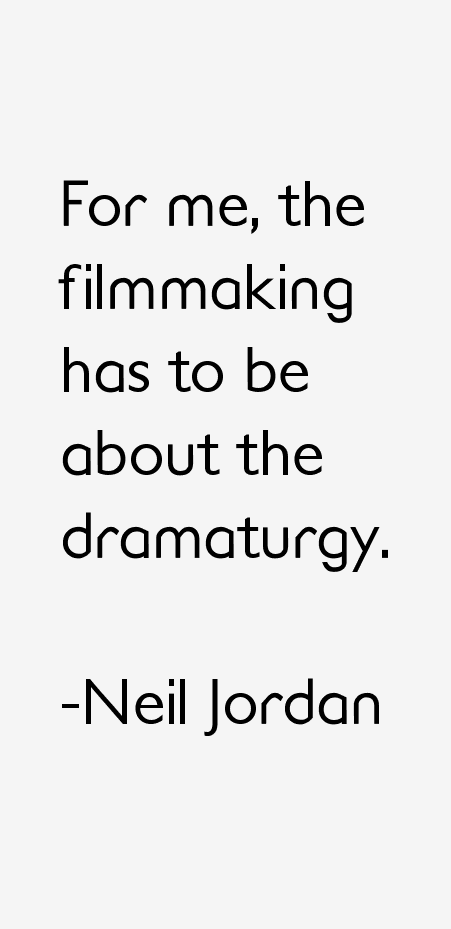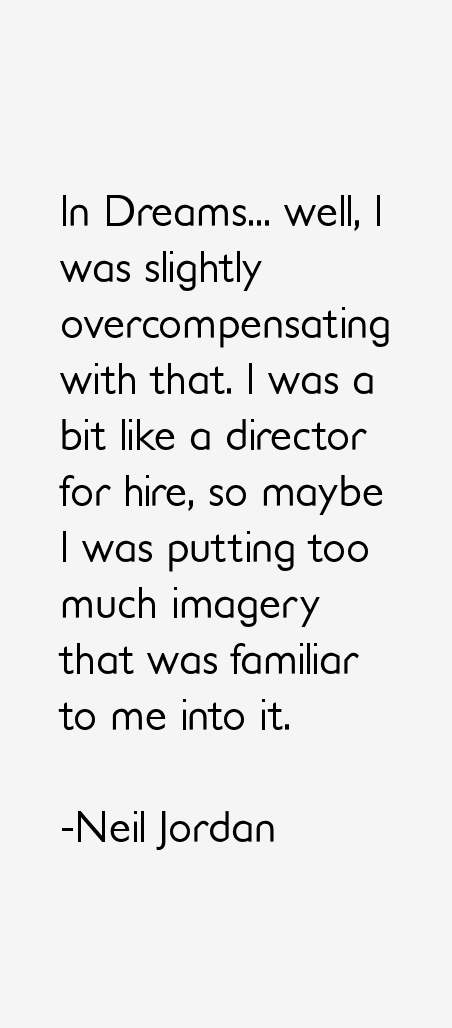Neil Jordan Quotes & Sayings
32 most famous Neil Jordan quotes and sayings. These are the first 10 quotes we have for him. He's a 75 year old Irish director born on Feb 25, 1950.
“The Company of Wolves is about how society teaches young women to look at themselves, and what to be afraid of. It's about a girl learning that the world of sensuality and the unknown is not to be feared, that it's worth getting your teeth into.”

“Well, Company of Wolves was about that literally, about fairy tales.”
“I've also worked hard portraying an Ireland which is fast disappearing. Ireland was a very depressed and difficult place in the 1980s, and I've tried to include that in the script. I worked really hard to find the heart of the book.”
“The Company of Wolves doesn't belong in any category, so it's difficult to prepare an audience for it. It's not a horror film, it's not a fantasy film, it's not a children's film - so what is it?”
“Why should a horror film be just a horror film? To me, The Company of Wolves is a fairy tale; it's got all those elements plus a lot more. And we know that fairy tales aren't innocent any more.”
“It's the opposite journey from what I've usually done with films. I find it very easy to go from, say, a lit, pleasurable environment, like what you see outside there, to a very dark place. But the opposite journey, which is what this movie takes, is much more complicated.”

“For me, the filmmaking has to be about the dramaturgy.”
“For me now, it's about what you would write and what you wouldn't write, and that's how I select what I am going to do. It can be quite nice being brought a concept by a studio for me to work on.”
“But everyone gets burnt, don't they? Certain things are outside of your control. I suppose the only thing you can learn as a director is to not put yourself into situations where it can get outside of your control. And that's what happened.”

“In Dreams... well, I was slightly overcompensating with that. I was a bit like a director for hire, so maybe I was putting too much imagery that was familiar to me into it.”
Neil Jordan Quotes Rating
No Ratings Yet
Leave A Comment
























